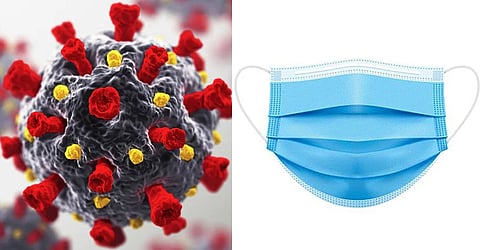

Several states of India have issued a health advisory due to a spike in COVID cases in the country. Most recently a new variant of the COVID-19 virus, the JN.1, surfaced in Kerala. This new omicron strain is the fastest spreading variant of the virus according to the CDC. So much so that a record number of COVID cases were observed after 7 months. It is important to note that so far, JN.1 has not been linked to different or more severe effects than the previous variants. But its rate of infection has caused the WHO to classify it as a ‘variant of interest’. Here is some more info about the JN.1 strain of the COVID virus:
Covid JN.1 is a highly mutated variant of the virus. It is closely related to the BA.2.86 variant, also known as the Pirola variant, but with one additional mutation in its spike protein. The mutations allow the virus to spread faster and bypass immune systems. It was also declared as the fastest spreading variant of the virus by Centre for Disease Control and Prevention (CDC).
Health officials say the symptoms appear to be the same as were seen from other strains of the virus. The CDC says that the types of symptoms and how severe they are usually depend more on a person's immunity and overall health rather than which variant causes the infection. However, the WHO says that JN.1's mutations look to be enough to outcompete other strains in evading the immune defenses, accelerating infections at a time when cases were already expected to rise from COVID-19, particularly due to the weather. It is important to note that the surge of cases have not been found to be directly related to the change in weather.
The WHO classified the JN.1 strain as a ‘variant of interest’, but said that it did not pose much threat to public health. The UN agency says the vaccine does help in combating severe disease and death from the JN.1 variant. The following advisory was issued by the Health Department in Chandigarh, highlighting the Do’s and Don’ts for the general public:
In the wake of a few Union Territories and states like Kerala reporting a surge in COVID cases, the Government of India has asked the state governments to focus on a number of preventive actions. These include increased surveillance and medical checks to detect and quickly contain the spread of COVID cases. Hospitals are also instructed to conduct mock drills and check the supply of oxygen and medicine. Hence, the residents are advised to follow these do’s and don’ts in public places:
Do’s:
Dont's: